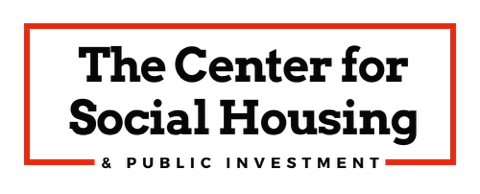Social Housing as a Means to transform Washington DC’s broken system and Achieve Housing as a Human Right
A housing system can only be considered successful if everyone has the ability to access housing at reasonable costs. Currently, in Washington DC, the average rent for a two-bedroom apartment is $3,250 per month. This works out to about $39,000 per year. Comparatively, a full-time minimum wage worker in the District earns only $33,488 per year. This leaves a gap of more than $5,000 between what such workers make in total and what is needed to pay an average rent. Given this reality, the only way for these workers, and many other Washingtonians, to afford rent is if their housing is subsidized in some way by either the federal or local government- yet the demand for subsidy outstrips supply. In fact, the waitlist for subsidized housing in Washington DC has been closed since 2013 and currently stands at 40,000 households.
Clearly, these numbers indicate that the District is in the midst of a housing crisis, the severity of which points to a broad systematic failure of the private market to meet the needs of working-class Washingtonians. This crisis has been ongoing for decades and has had a disproportionate impact on low-income and working-class black Washingtonians. The results have been mass displacement, perpetual housing instability, and rampant inequality. A system that is as broken as the one described above is easy to criticize. What is more difficult is to offer an alternative development model that promotes continued development without displacement. The Center for Social Housing and Public Investment exists to promote such an alternative.
This introduction is part of a series of reports which will argue that the District should adopt social housing as the alternative to solve this crisis. The first installment of the series will examine the underlying causes of the housing crisis on a national level. The second installment will document how local DC policy decisions are exacerbating the crisis in the District. The third installment will introduce social housing as a means to create sustainable, mixed-income and permanently affordable municipally-owned housing. Finally, the last installment of the series will examine how social housing can be implemented in the District as a central pillar in a broad plan to actually achieve housing as human right.
Part 1: The Role of Global Finance as a Driving Force in DC’s Affordable Housing Crisis
Part 2: The Economics of Speculation, Demolition and Displacement; A Worsening of Washington DC’s Affordable Housing Crisis
Part 3: The Economics of Housing As a Human Right; How Social Housing Can Solve The Affordable Housing Crisis by Using Public Resources for the Common Good
Part 4: Social Housing in the United States- An Idea Whose Time has Come




